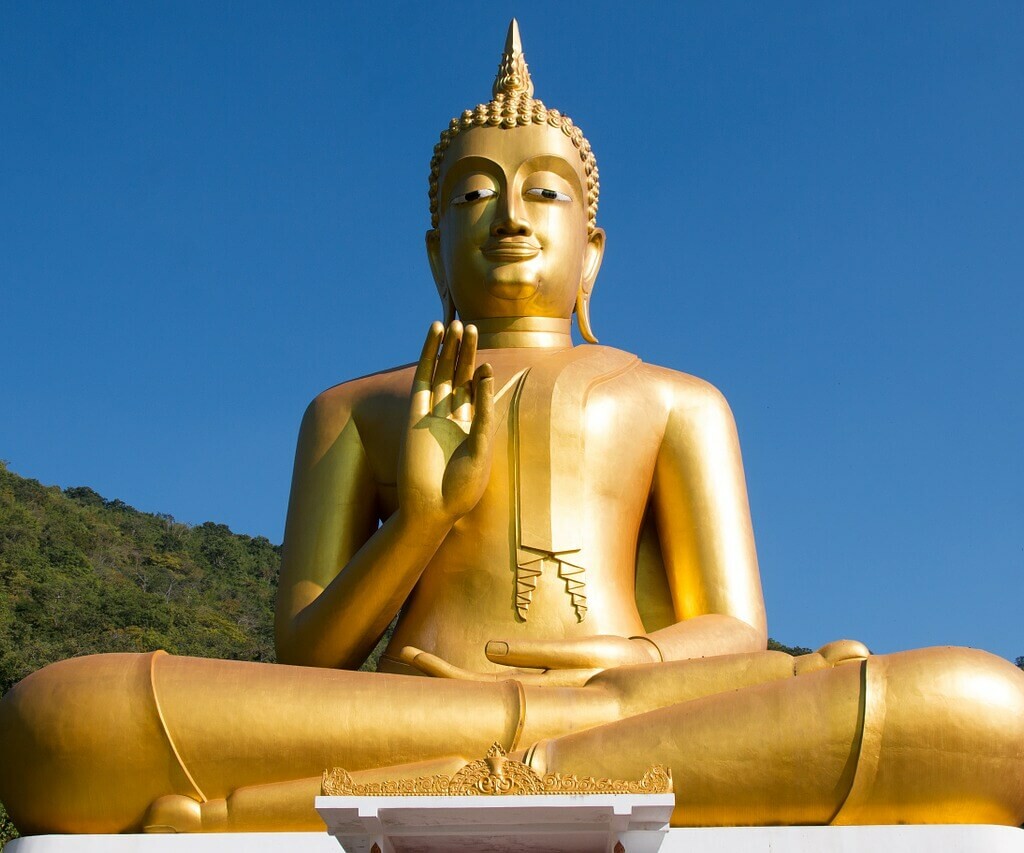The Asala Festival recalls the significant historical moment when Gautama Buddha, the Enlightened One, arrived in Isipatana, near Benares, India. On this site, he met the first five disciples in the Gazelle Park, to whom he gave his first sermon, thus starting the dissemination of the Wheel of Dharma or Spiritual Teaching (Buddhadharma).
The Asala Festival: Commemorating the Beginning of the Teaching of Buddhadharma
The Asala Festival is held during the Full Moon in June. Just as “Wesak” is celebrated on the full moon of May, the following month, during the full moon, “Asala” is celebrated. In Pali, the ancient language spoken in India, Asala is translated as June and wesak as May.
The Buddha Festival, or “Wesak”, is commemorated on the full moon of May, the date of birth of Prince Siddhartha, later known as Gautama Buddha, who attained enlightenment and ascended in a full moon in May.
The Full Moon in June 2023: Meditation and the Teachings of Gautama Buddha
According to the 2023 lunar calendar, the full moon in June falls on Sunday, 4, 2023.
This day is ideal for meditation, taking advantage of the energies conducive to promoting personal purification, inner peace, recognizing aspects of divinity in us and awakening of our consciousness.
It is part of the learning path for those who want to learn and apply what they have learned. The teachings of Gautama Buddha are based on the “Four Noble Truths” and the “Noble Eightfold Path”, also known as the “Eight Positive Attitudes to Life”.
The “Four Noble Truths” pronounced by Siddhartha Gautama, constitute the core of Buddhism and these are:
- Every existence entails suffering
- The origin of suffering is longing (or desire)
- Suffering can be eradicated by suppressing its cause
- To eliminate the cause of suffering, we must follow the “Noble Eightfold Path” (whose practice eradicates the eight causes of suffering)
The Noble Eightfold Path
- Correct understanding;
- Correct (positive) thinking;
- Correct speech (precise word);
- Right action (appropriate attitude);
- Correct life;
- Correct effort;
- Correct Mindfulness;
- Correct meditation.
Perenniality of Gautama’s teachings
Gautama’s age-old lessons persist today, inviting us to experience them. The spiritual path is presented to us as a path to follow freely, making it easier for us to discover our own inner guide or that silent voice that resides in every heart.
Just as we nourish our bodies with food and drink, it’s equally vital to nourish our spirit. Meditation is shown to be a powerful tool for connecting with our deepest self and expanding consciousness.
Conny Mendez, a renowned teacher of metaphysics from Caracas, dedicated herself to awakening the Christ in people. He said that teaching was represented in each heart, symbolized by the Triple Flame: blue, gold and pink. For Gautama, the Three Refuges are:
- The Buddha (Enlightenment)
- the Dharma (teaching)
- and the Sangha (community).
We all have the potential to become channels for the transmission of spiritual teachings, spreading the light of good and love in the world.
The Impact of Buddhism on Modernity: Celebrating the Asala Festival
The Asala Festival is not just a celebration but a renewal of the commitment to follow the teachings of Gautama Buddha, a moment of reflection on our lives and actions. In the modernity of our society, these age-old practices offer a refuge and a guide in the midst of the turbulence of daily life.
By following the Noble Eightfold Path, each individual can contribute to the creation of a more compassionate and conscious world. These teachings, although they originated thousands of years ago, have a resonance that crosses time and cultures, providing a spiritual and ethical framework that can be useful in all facets of life.
Buddhism, through the figure of the Buddha, the Dharma and the Sangha, invites us all to be bridges of connection for spiritual teaching, awakening and expanding the light of good and love in the world.
Thus, as we remember and celebrate the Asala Festival, we continue this ancient legacy of wisdom and compassion that is as relevant today as it was during the days of Gautama Buddha.





